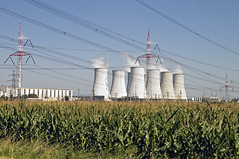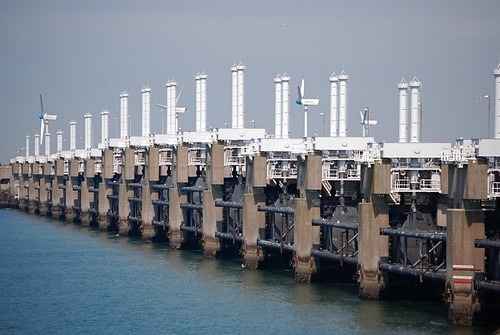I want arrest warrants issued for all US government officials, local and national, who have missed continuous chances to really initiate a true sustainable plan for the gulf coast in rebuilding and properly preparing the coast line for the storms that are inevitable.? I suppose as its only a cat-2, the charge for mismanaging Gustav will only be criminal negligence and embezzling relief funds.? But I want to see people brought to justice who have not fulfilled their promise as public servants.? While we’re at it, we can issue long overdue murder and attempted murder warrants to all those? who stood by before, during, and after Katrina only a couple of years ago.? Being fired or shuffled from your cabinet position does not count as justice, a trial is still necessary.
 Now we watch Gustav pass over the Gulf Coast, it isn’t Katrina in many ways, but the truth that Katrina confirmed, once again shines through — the money hasn’t gone where it should have, the recovery has still not been properly carried out. Levees in places like the West Bank aren’t finished, while others are simply too small.. and in either case, these are known facts. In other words, criminal acts where individuals have failed to do their essential jobs – planning, funding, and carrying out the work that is needed.
Now we watch Gustav pass over the Gulf Coast, it isn’t Katrina in many ways, but the truth that Katrina confirmed, once again shines through — the money hasn’t gone where it should have, the recovery has still not been properly carried out. Levees in places like the West Bank aren’t finished, while others are simply too small.. and in either case, these are known facts. In other words, criminal acts where individuals have failed to do their essential jobs – planning, funding, and carrying out the work that is needed.
As I write this there are levees over topping and spilling over into neighborhoods around New Orleans. Authorities are quick to point out this damage is no problem and that in some cases the rebuilt levees are just barely managing to hold.? All this from a category 2 hurricane and storm surge. What would happen with a category 3 or 4? Would the city’s flood protection system be able to handle such storms that will, of course, come eventually? No.
There’s money for political party conventions and sending everyone a check for a few hundred dollars. There’s even money somewhere in Louisiana, set aside for Katrina recovery and properly rebuilding infrastructure, but none of this money goes where it can do any good, towards preserving communities and saving lives.
The storms continue and the criminals, they carry on as if they’ve done nothing wrong.
 As much as I hate what a giant clich? this date has become, there are still a few memories and pieces of culture I don’t mind revisiting.? Moreover I hope this day would be a reminder to put things in perspective, in my case to never forget how dangerous jingoism and blind patriotism have been for this planet since 9/11 and long-long before it.
As much as I hate what a giant clich? this date has become, there are still a few memories and pieces of culture I don’t mind revisiting.? Moreover I hope this day would be a reminder to put things in perspective, in my case to never forget how dangerous jingoism and blind patriotism have been for this planet since 9/11 and long-long before it. Over the years, trains carrying nuclear waste traveling between Germany and France have gained a decent amount of media attention.? These journeys used to attract crowds of protesters pointing out the danger and lack of long term plan that either country had for their waste.
Over the years, trains carrying nuclear waste traveling between Germany and France have gained a decent amount of media attention.? These journeys used to attract crowds of protesters pointing out the danger and lack of long term plan that either country had for their waste.
 While inside it is all smiling faces, boring pre-written speaches, and picture perfect pageantry, outside the convention-
While inside it is all smiling faces, boring pre-written speaches, and picture perfect pageantry, outside the convention-  Apparently the amount of international pressure demanding their early release was quite significant and may have been a factor in these events unfolding as fast as they have.? I’ve been told that the story of Brian/the Beijing 6 had spread through the internets and to several high profile major media outlets.
Apparently the amount of international pressure demanding their early release was quite significant and may have been a factor in these events unfolding as fast as they have.? I’ve been told that the story of Brian/the Beijing 6 had spread through the internets and to several high profile major media outlets.